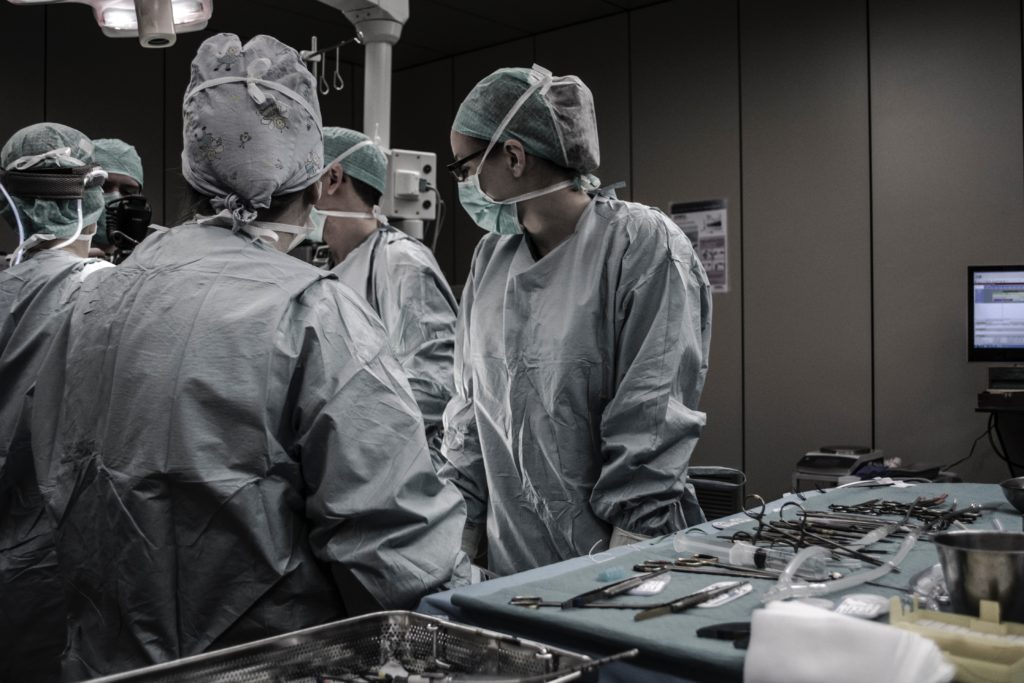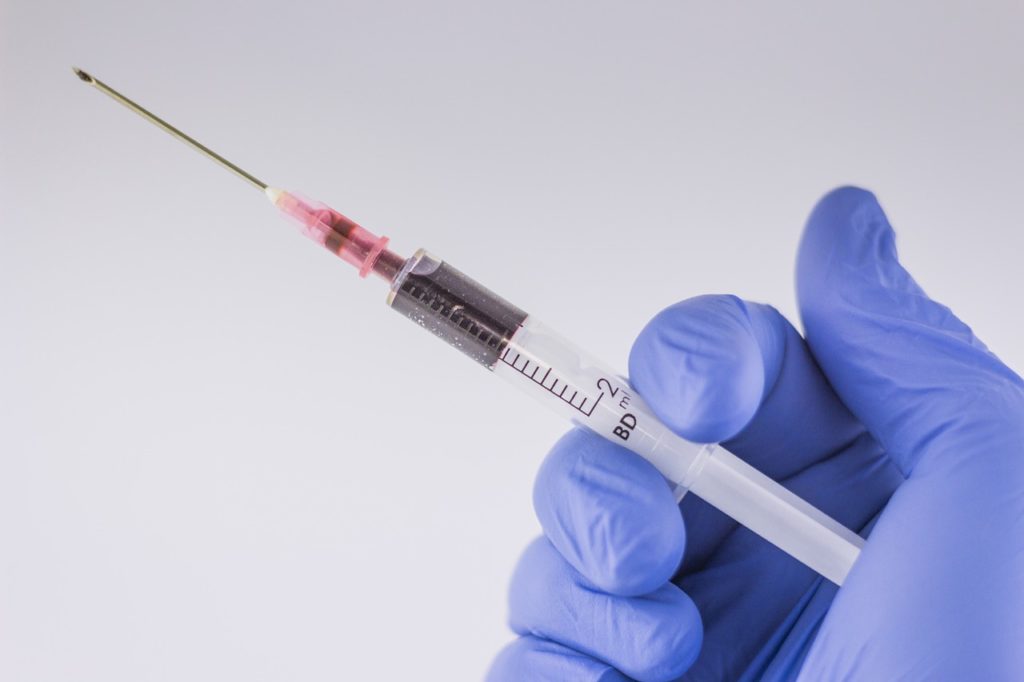Getting stuck by a needle in the hospital or some other type of medical setting can be a lot more concerning than having a simple needlestick injury. The needle could have been used on another patient who had dangerous infective diseases such as HIV, Hepatitis B or C, or other bloodborne pathogens.
If you are stuck by such a needle, the hospital or other healthcare professionals could be at fault for not following the federal guidelines in disposing of used needles (also known as “sharps”).
Needlestick injuries are a hidden epidemic, with many of the CDC-estimated 600,000–800,000 incidents a year going unreported. The attorneys at the Thistle Law Firm are experienced with these claims, and may give you your best chance at getting the justice you deserve.

The Risk Needlestick Injuries Pose
Needlestick injuries have been increasingly common since the 1970s, when blood collection was revolutionized by new easy-draw needles that required less training.
Easier access to blood testing and medical advances that required more of it increased the number of needles in circulation. And they greatly increased the number of needlestick injuries — particularly because safety procedures were not yet mandated for this emerging danger.
In a twisted win for healthcare workers and malpractice victims, the danger may not have ever been addressed at all if it weren’t for a number of high-profile cases in the 1980s and 1990s of needlestick victims testing positive for AIDS.
Even though needle safety is now standardized in healthcare facilities, contaminated needles still pose a grave danger.
The Standards Needle Handlers Should Be Following
Occupational Safety and Health Administration (OSHA) standard 29 CFR § 1910 requires needles that have been in contact with blood or other potentially infectious materials to be disposed of safely. In addition, if you work at a hospital or healthcare office, protective equipment must be provided to you.
OSHA mandates that all healthcare facilities whose employees work with needles must have a process in place to dispose of contaminated needles immediately or soon after use. These disposal containers must be easily accessible and located as close as possible to the area where needles are being used. The disposal containers should be placed in areas where vulnerable patients, such as young children and psychiatric patients, cannot reach them and get stuck by them. These disposal containers must be available not only in areas where needles are being used, but also where they may be found after use.

Disposal Rules Are Quite Specific
A contaminated needle can never be broken or sheared. They can only be recapped, bent, or removed if doing so is required for a medical procedure or if there is no other feasible alternative. If such action is necessary, the hospital or medical office must ensure either a mechanical device is on hand to do so, or that the medical staff is trained to use a one-handed technique to do so. Tongs or forceps can also be used to hold the needle.
The containers to dispose of the needles must be puncture-resistant with leak-proof bottoms and sides. They have to be labeled or color-coded to make it clear they contain hazardous material. These containers must also have a lid and be kept upright to prevent the material in them from spilling out. More importantly, they must be replaced and emptied routinely so they do not get overfilled, thus increasing the risk of a needlestick injury. The hospital or medical office must also ensure reusable disposable containers are not emptied or cleaned manually.
If the needles are reusable, the hospital or medical office must make sure they cannot be stored and processed in a way that requires medical staff to reach into a container and potentially get stuck. Disposal containers must be closed before they are removed or replaced to prevent spilling. If there is a chance of leakage from the container it must be placed in a secondary container.
What to Do if You Get a Needlestick Injury
When a trusted professional or care facility falls short of their duty of care, it can be emotionally trying as well as physically debilitating. But threatening a lawsuit often makes things worse.
Before you do anything, these steps usually come first:
1.) Follow the CDC’s guidelines for needlestick injury
2.) If you suspect malpractice was at fault, consider the steps recommended in our guide:
-
- Order all your medical records pertaining to the malpractice
- Get a second opinion
- See a medical malpractice lawyer immediately
3.) If it was a workplace injury, contact worker’s compensation
4.) Record all the information you can gather about the injury and its root cause. Here are some questions to consider:
- Are disposable syringes with safety features available?
- Is the sharps disposal container properly located for immediate disposal of a contaminated syringe?
- Was there adequate room in the container to safely dispose of the contaminated needle?
- Was staff properly trained in the safe use and disposal of needles?
- Did staff deviate from safety standards and protocols?
- Did staff follow proper needlestick injury reporting protocol?
5.) Undertake viral serology testing for HIV, Hepatitis B, and Hepatitis C if infection was possible
When to Consult with an Experienced Malpractice Lawyer
If a hospital or medical office violates these guidelines resulting in you or a loved one being stuck by a contaminated needle, you could have a claim against the hospital. This will require a review of your records to determine, and potentially consultation with medical experts.
If you are an employee at the hospital or medical office and were stuck by a contaminated needle, you could have a claim if you were stuck due to the negligence of an independent contractor or someone who is not an employee at the hospital. If you are stuck due to the fault of your employer you would have a workers’ compensation claim instead. A quality Medical Malpractice Lawyer can help.
The Thistle Law Firm is experienced at handling needlestick injury cases. If you or a loved one suffered injuries from a contaminated needle, the attorneys at the Thistle Law Firm are here to take your call at 215-525-6824.

